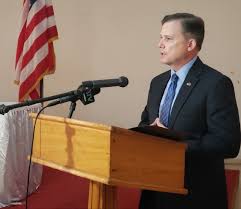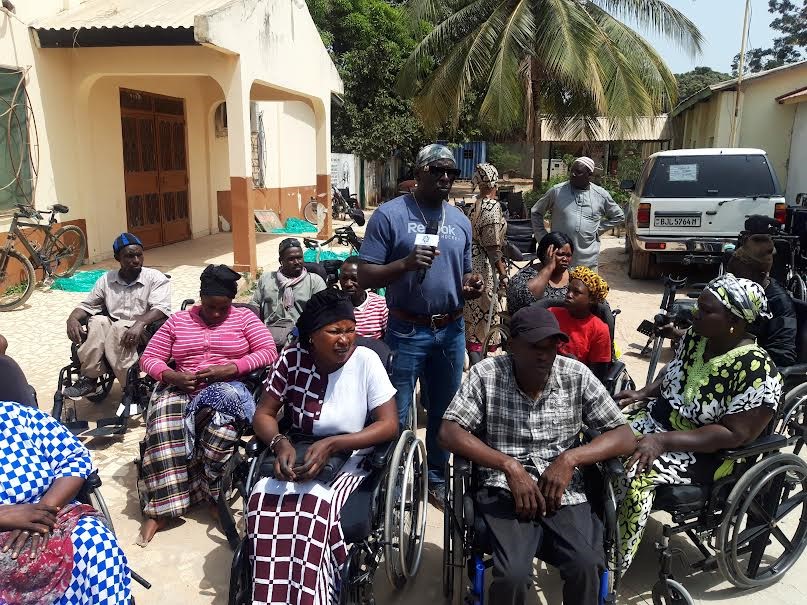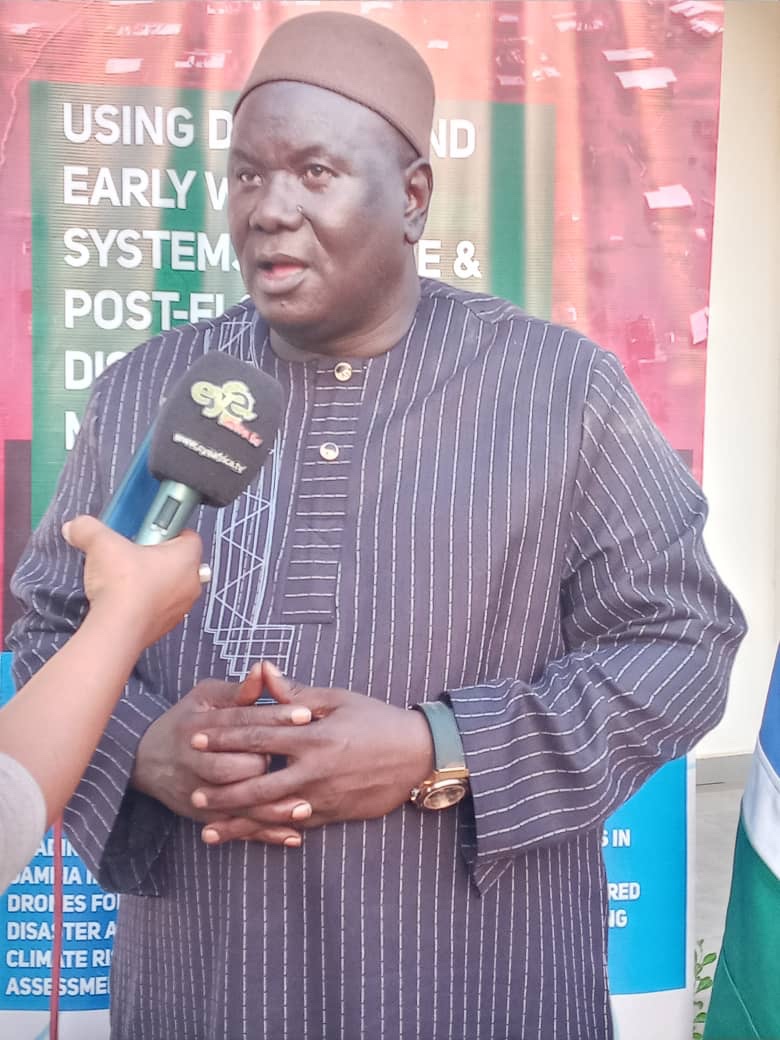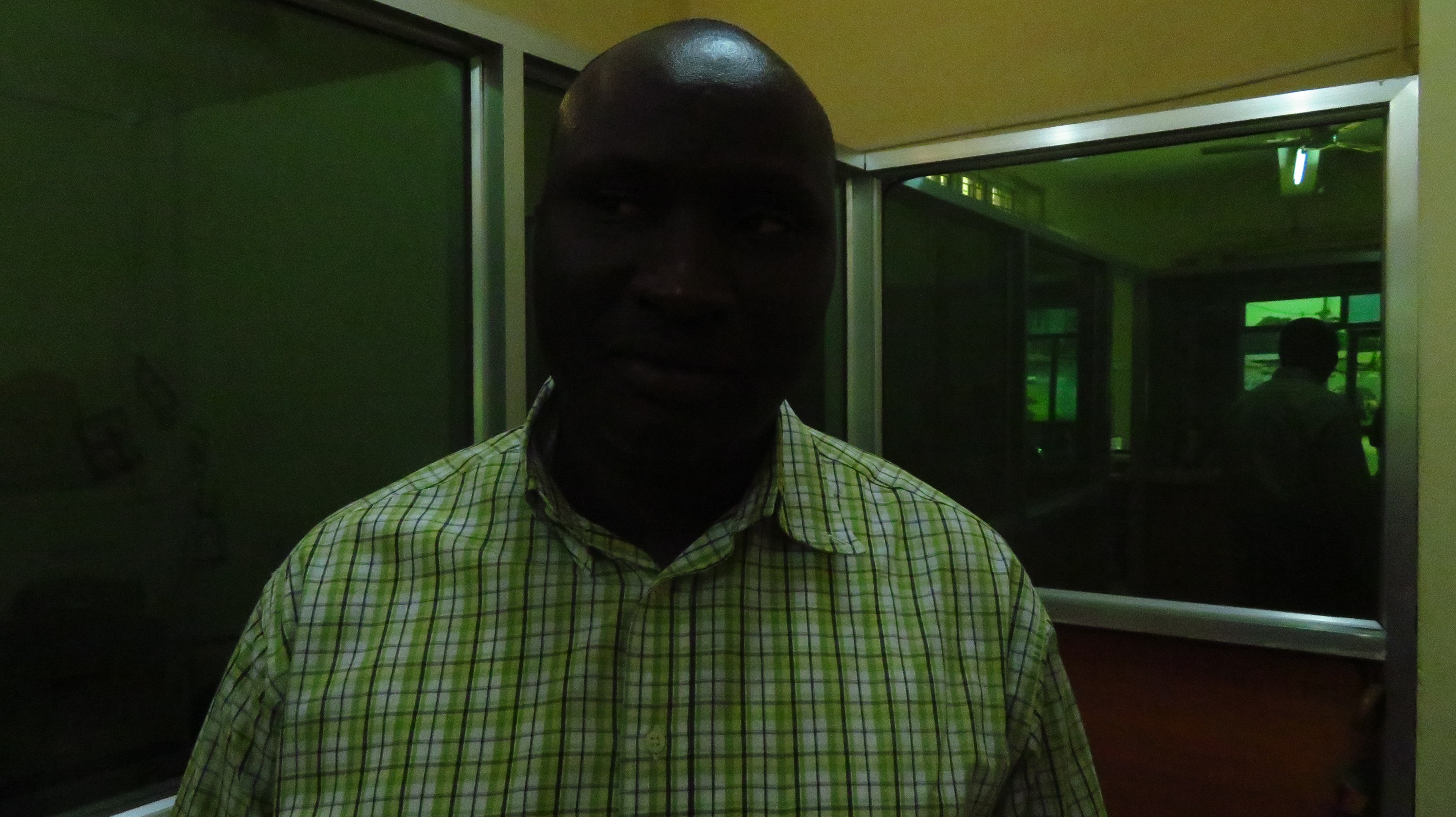The United States ambassador to The Gambia, Carl Paschall, Thursday pledged his country’s steadfast support for Gambia’s democracy and people.
This was contained in a statement issued here and made available to The Voice in connection with the celebration of the U.S. independence day anniversary, which falls on Saturday, 4 July.
Paschall noted that, with the coronavirus (COVID-19), the embassy team in The Gambia would not be able to host its annual event to celebrate the occasion with their Gambian friends.
“But one thing that remains the same is our unshakable commitment to the people of The Gambia,” he said.
“The courage shown by Gambians to vote for peaceful, democratic change in December 2016 inspired the world. The commitments to publicly examine the truth of abuses committed and seek justice and reconciliation inspires the world.
“The ongoing efforts to reestablish the foundations of human rights and human dignity, of representative and accountable governance, of equal access to justice, continue to inspire the world,” he said…
He urged Americans around the world to stop to reflect on the importance of democracy, inclusive and representative government, and fundamental freedoms.
The envoy said though the United States would celebrate her Independence Day, but noted that, with COVID-19, this year’s celebrations would look different.
Paschall commended President Adama Barrow, members of his cabinet, elected representatives in the national assembly and most importantly the people of The Gambia for their continued commitment to peaceful, democratic change.
He pointed out that the US would continue with its commitment to support The Gambia’s implementation of its National Development Plan (NDP), which is an ambitious roadmap for foundational change.
“Our shared goal is to see an independent, self-reliant, and successful Gambia, which serves as a pillar of stability, democracy, and economic vitality in the region. “U.S. assistance is primarily targeted at improving the Gambian government’s ability to effectively deliver services to the Gambian people, and the Gambian people’s capacity to serve as drivers and architects of their own development trajectory.
“The United States’ vision of The Gambia of the future is a country that no longer needs aid and, thanks to the drive and capacity of the Gambian people, can respond to the needs and demands of its people,” he said.
The envoy said that last year, over 50 Gambian security officers attended training at the International Law Enforcement Academy’s (ILEA) Regional Training Centers.
“We sponsored technical advisors to the Security Sector Reform and government budgeting and debt management reform efforts.
“Our programming is helping National Assembly Members represent their constituents and fulfill their constitutional duties,” he added.
With regard to support for communities and organizations, the US envoy said his government “provided over $750,000 to support The Gambia’s capacity to combat trafficking in persons”.
It also “committed over $1 Million to support victims and encouraged the participation of civil society in the Truth, Reconciliation and Reparations Commission (TRRC)”.
He further disclosed that many villages throughout The Gambia had benefited from small grants to dig wells, purchase rice mills or install solar power banks through the Ambassador’s Self-Help Fund.
“This past year, our Public Diplomacy Section sponsored a computer lab at the school for the deaf, vocational training for marginalized women and girls, and a weeklong camp for young leaders from the rural regions,” he added.
Paschall stated that the Millennium Challenge Corporation (MCC) concluded a comprehensive assessment of “binding constraints” to economic growth, and focused on supporting Gambian efforts to address inefficiencies in the generation and distribution of electricity, with accountability for revenue collection and energy sector investment.
“We hope to re-start the program now that The Gambian government’s work to combat trafficking in persons has resulted in lifted restrictions on assistance.”
The US, he said, was the largest contributor to the budgets for most, if not all, United Nations agencies working in The Gambia.
It is also supporting the National Development Plan and related efforts from agriculture, health, security and justice sector reform to education system improvements and many more areas, he stated.





